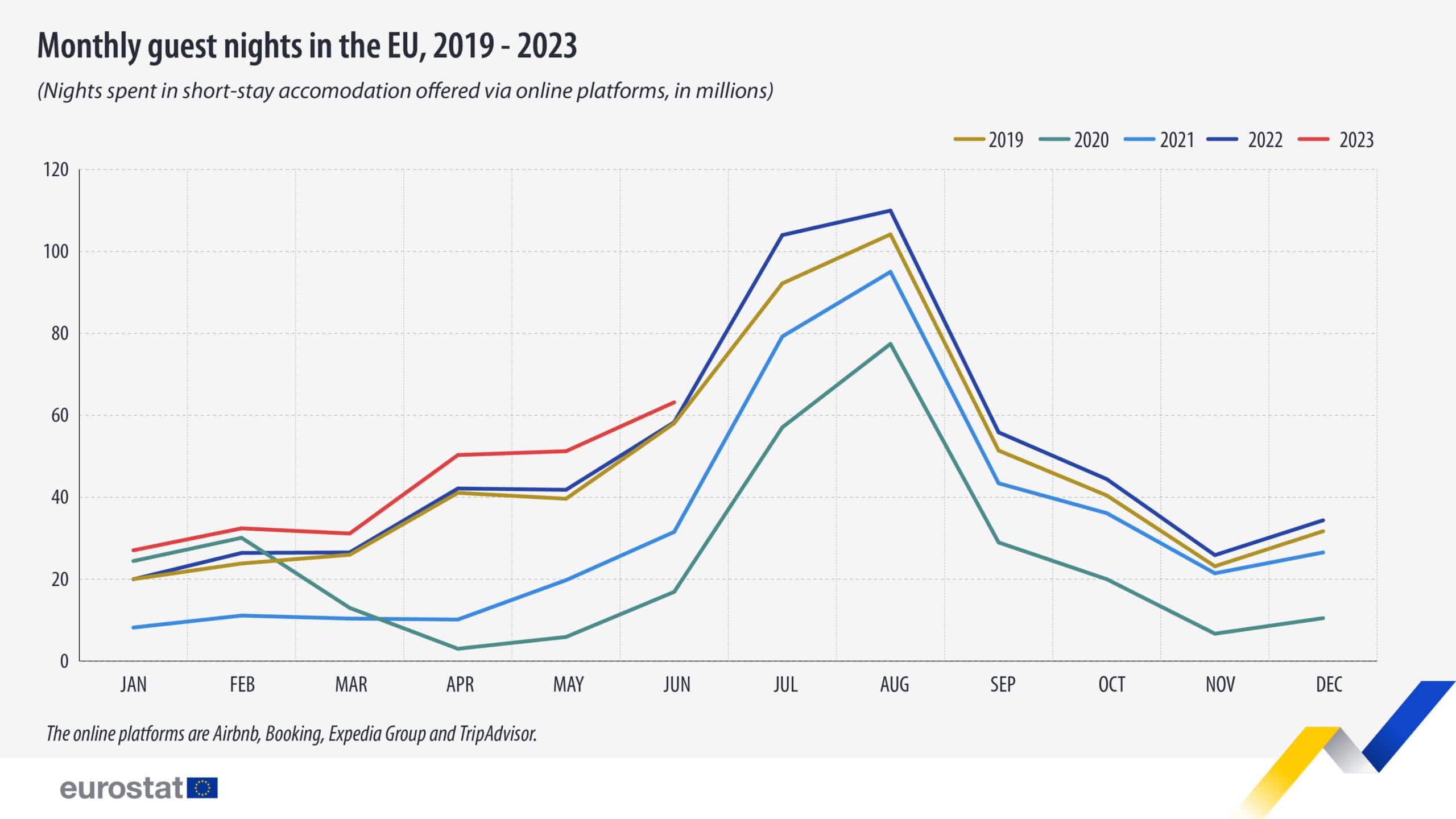From the Correspondent in Strasbourg – The European Union is ready to crack down on the jungle of short-term rentals through digital platforms in European cities. The European Parliament today (Feb. 29) gave the green light to the agreement reached in November with negotiators from Member States. Now, all that is missing is the final green light from the 27 Member States, and then Airbnb, Booking, Expedia, TripAdvisor, and all short-term portals will have to ensure traceability and tax guarantees across the EU.
A relevant majority of the European Parliament confirmed the text that emerged from inter-institutional trialogues: with 493 votes in favor, 14 against, and 33 abstentions, MEPs closed the file and passed the ball to the Council. The new regulation proposes rules to improve transparency in a sector that saw a spike in recent years and help governments develop sustainable and balanced tourism.
The regulation hinges on registering – and data sharing – landlords who rely on online platforms. Anyone who makes short-term housing available will have to register with authorities and apply for the issuance of a unique identification code, with the obligation to display it on the platforms. The portals will share rental information via a digital portal every month. This strategy, which involves identifying landlords and tracking their activities, will facilitate government departments in overseeing the tax burdens on landlords.
The agreement between EU institutions stresses that registration tools should be available online for free – or at a “reasonable and proportionate” cost – to landlords. Landlords should provide specific information such as the detailed address of the unit, the maximum number of beds available, and whether the unit is offered in whole or in part. Online platforms, in turn, should make “reasonable efforts” to verify whether the information provided during the registration process is accurate. Once the European Council approves the agreement, the regulation will apply in member countries after 24 months. The rapporteur for the European Parliament, Kim Van Sparrentak, recalled on the sidelines of the vote that “the spike in illegal short-term vacation rentals” makes cities across Europe “more difficult to live in and less accessible.” Van Sparrentak cheered a law that “requires platforms to share their data with local authorities, allowing them to better enforce rules for vacation rentals so housing remains accessible for residents.“

Putting order to the world of tourist accommodation is increasingly urgent, and, indeed, the EU has been unprepared for the growth of short-term rentals, which now account for about a quarter of the sector. According to Eurostat data for the first half of 2023, guests spent about 237 million nights in rental accommodation booked through online platforms across the EU, up 18.8 percent from the previous year. A phenomenon mainly affecting the countries with the most tourists: of those 237 million nights, more than 34 million were spent in Italy, 47 million in Spain, and 57 million in France.
English version by the Translation Service of Withub

![Un motoscafo in Svezia. Nell'Ue si pone un problema di mancato riconoscimento delle patenti nautiche [foto:
Matti Blume, Wikipedia Commons. Copyright: Creative Commons Attribution-Share Alike]](https://www.eunews.it/wp-content/uploads/2024/11/motoscafo-Saltsjoen_Stockholm_P1090679-120x86.jpg)


